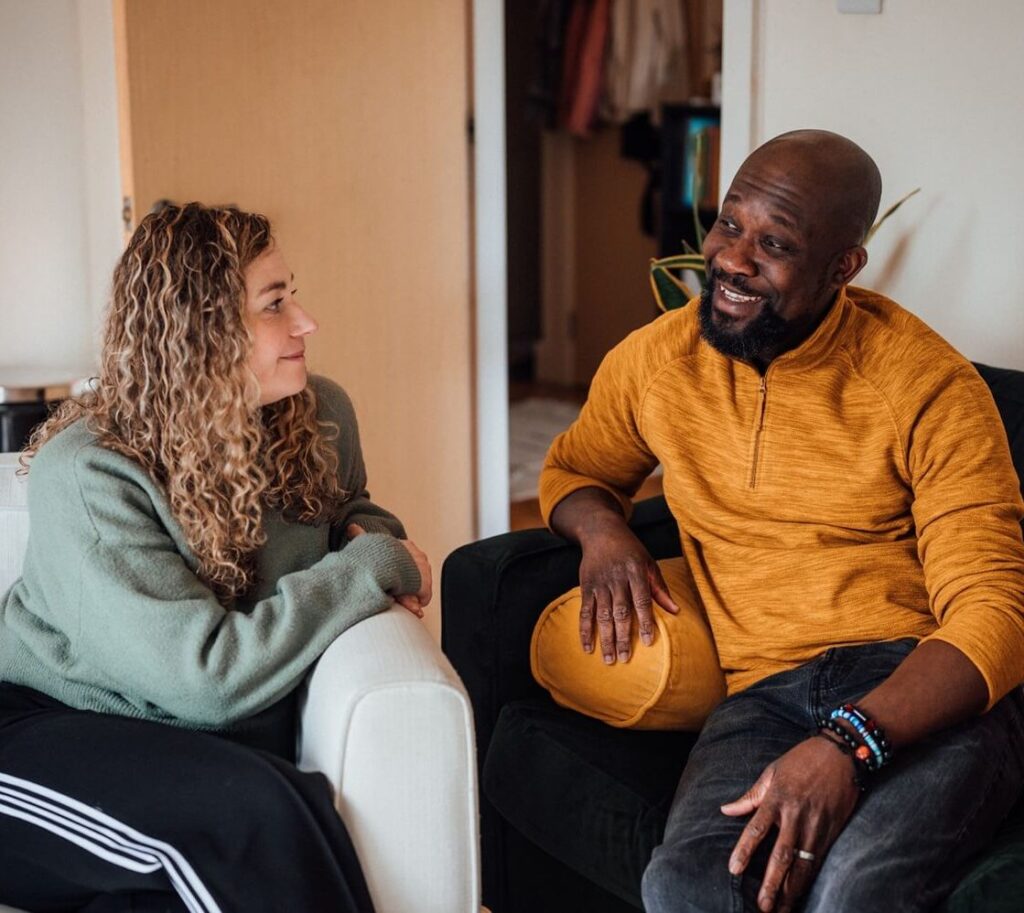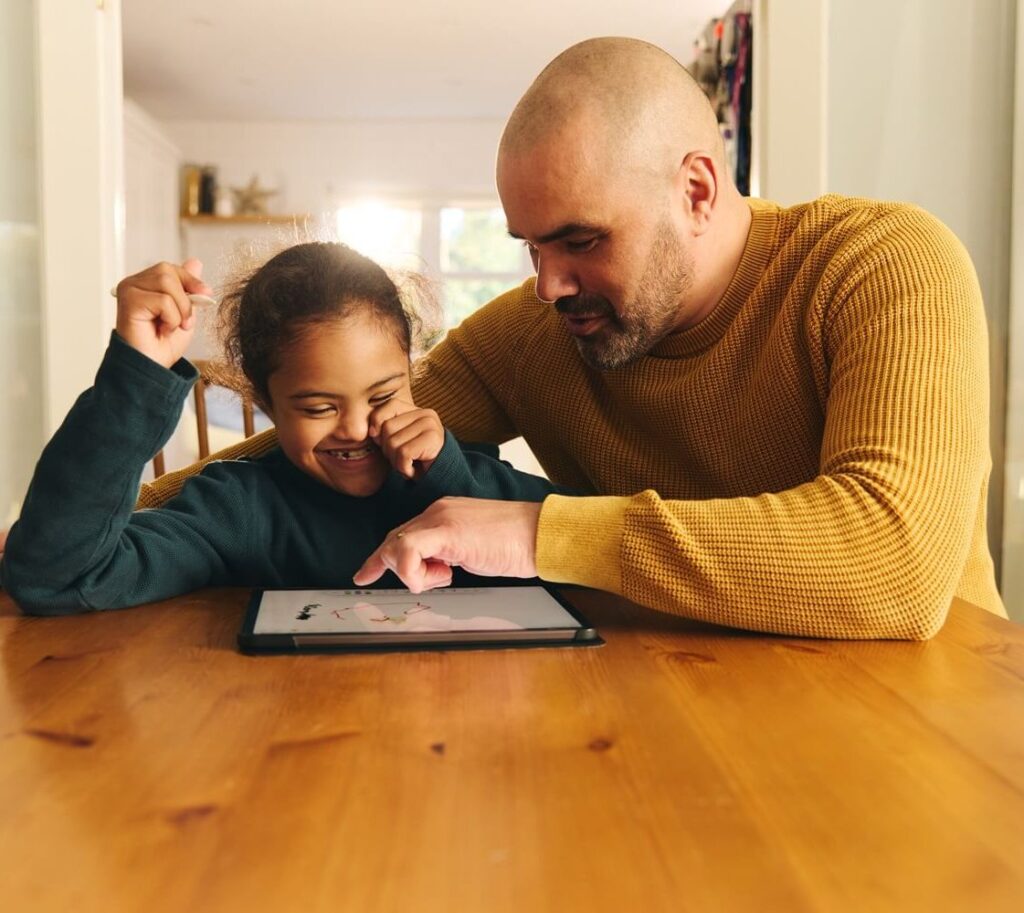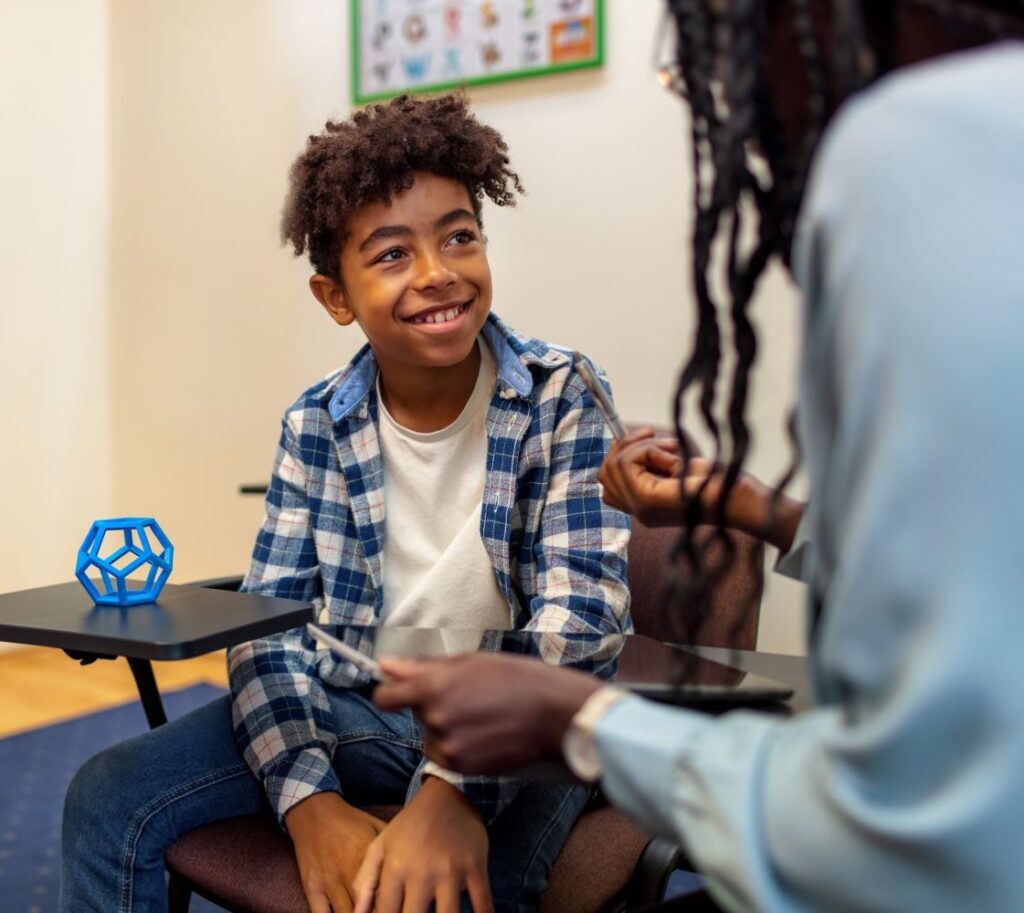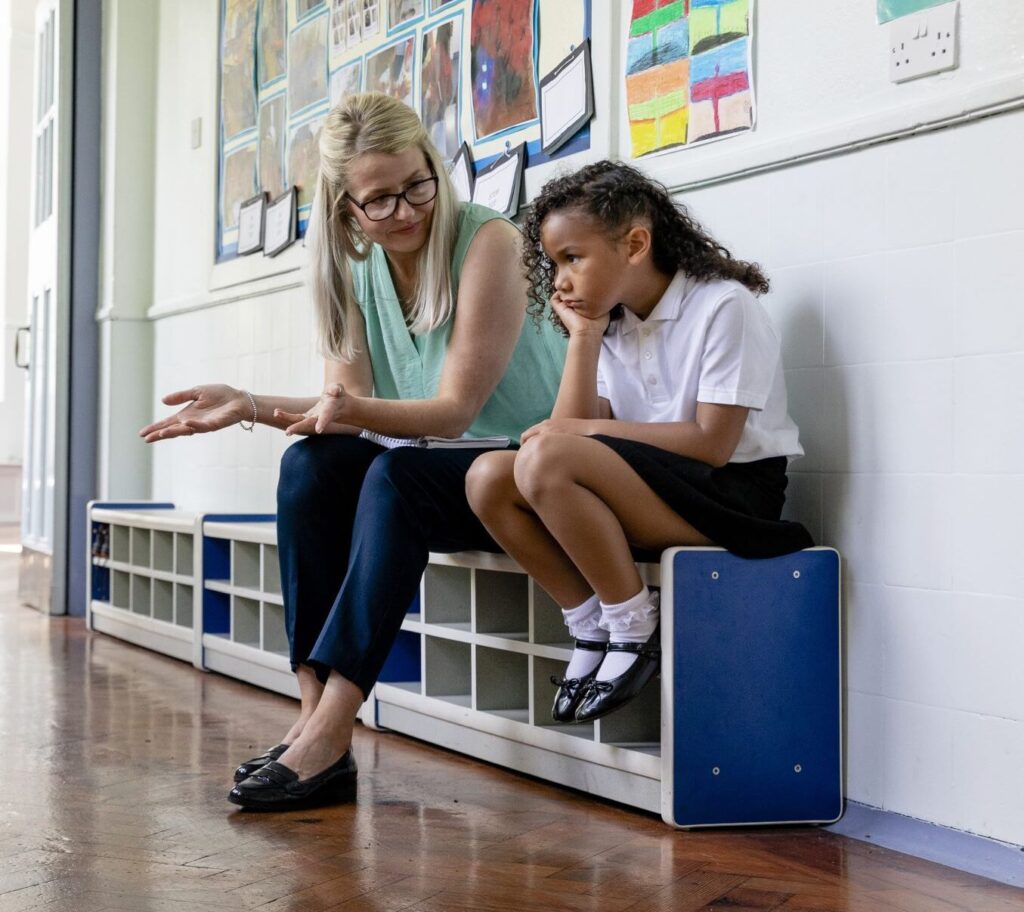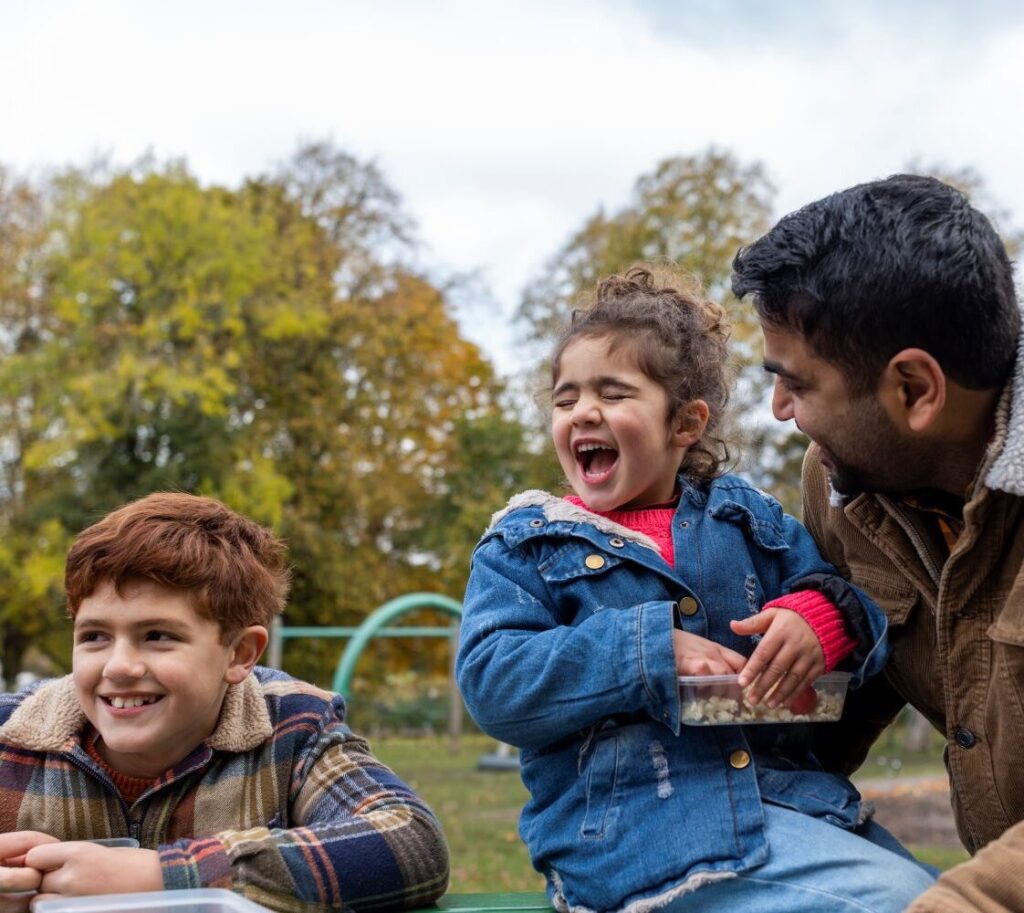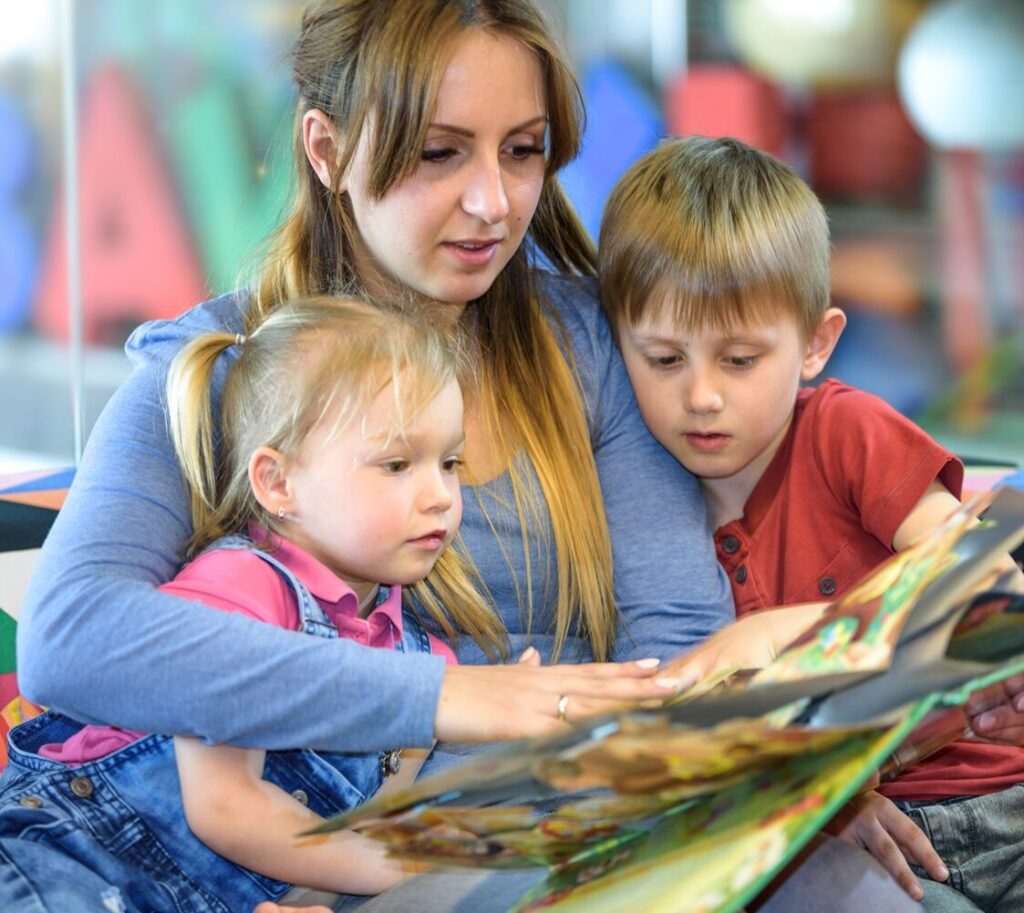Our West Suffolk Neurodevelopmental Support Service explains why Christmas can be a tricky time of year for neurodivergent children and young people, along with some positive and adaptable ways you can help.
With social media, adverts, and traditions all portraying a “picture-perfect” Christmas, it’s easy for families to feel pressure to create this same experience. However, Christmas can bring unique challenges for neurodivergent children and young people, where unfamiliar routines, sensory inputs, and social demands can cause distress.
But remember, Christmas looks different for everyone, and there’s beauty in making it your own. There may be times when it’s better to let things go in order to meet your child’s needs, and stereotypical Christmas traditions may be one of those things.
Routines and predictability
Christmas often brings change to usual routines and activities, and for many neurodivergent people change can lead to uncertainty. This uncertainty can result in anxious feelings and dysregulation. Typical seasonal changes that may feel overwhelming include (but aren’t limited to):
- different activities in schools
- Christmas music
- busier aisles in shops
- decorations in the home.
Recognising this and working to keep some familiar routines can help to create stability. An example of this might be to keep bedtime the same. Or maybe your child eats their dinner in their usual place, while the rest of the family eats with other guests.
Keeping routines in place not only supports your child’s needs but could also ease the transition back to ‘normal’ after the festive period.
Christmas gifts
Christmas presents themselves can bring challenges. The excitement, or sometimes the uncertainty, of what might be under the wrapping paper can be intense. If this is the case, you could add clues on the gift tag, leave a peep hole in the paper, or wrap gifts in clear cellophane. And some children might prefer opening gifts quietly or without an audience to minimise any social pressure.
The anticipation of having to ‘wait and see’ can be tough for some children and young people. In this situation, you might let your child or young person open some presents early, or after Christmas, to reduce the overwhelm on a single day. Always be guided by them.

Plan for down time and recovery days
There can be a lot of expectation around Christmas time to visit friends and family or have them visit you. Try to make plans together as a family to meet everyone’s needs. Consider where your child may need rest time to recharge. This may mean a few hours’ break from social visits or visitors, or maybe a full day.
It can also help to plan one or more recovery days after the main Christmas events to allow your child to decompress and unwind by doing whatever helps them cope with potentially overwhelming situations. This will vary from child to child but you could:
- plan walks in the park
- have a quiet day at home
- feed the ducks at the local pond
- bake together
- do some arts and crafts activities.
Prepare your child with visual cues and ‘what ifs’
Having a clear plan for the day can help reduce the uncertainty that comes with social gatherings, especially when many family members may be visiting or there’s travel involved. A visual timetable or a social story can be useful for laying out the day as it helps children understand:
- who is coming
- when they’re coming
- what activities are planned, if they choose to join in.
Include ‘what ifs’ in the plans, such as:
- If it’s too loud, I can use my ear plugs.
- If I don’t want to play the game, I can listen to music instead.
- If I feel too hot, I can go outside.
- If I need some quiet time, I can sit in my room.
If it’s likely your child may become overwhelmed during visits, you could agree in advance a discreet non-verbal signal your child can use to let you know they need a break. At home, this could be as simple as them collecting a blanket from the lounge and heading upstairs. If you’re visiting others, it might be a gentle squeeze of the hand.
When visiting others, stick to a realistic timeframe for your young person so it’s a positive experience. Check with your hosts beforehand if there’s a quiet space your child or young person can retreat to if needed. To make a new place feel more manageable, take things that help your child feel comfortable, such as:
- comfort items
- ear plugs
- headphones
- fidget toys
- a weighted blanket.

Create a script for social situations
Scripts can also be a good strategy, especially at times when anxious feelings might affect communication. Preparing a few phrases in advance can support your child’s confidence in what may feel like tricky social situations. Examples might include:
- How to respond to receiving a gift: “Thank you for my present. I’ll enjoy opening that once I’m home.”
- How to greet relatives you haven’t seen for a while: “Hello, it’s nice to see you.”
These prepared responses can make your child feel more comfortable and offer a bit of predictability in social settings that may feel overwhelming.
Consider sensory differences
The sensory aspects of Christmas – flashing lights, scented candles, bustling shopping centres, and busy gatherings – can sometimes overwhelm children with sensory sensitivities.
Preparing in advance can help. Before you start putting up the Christmas decorations, it may be useful to look at photographs of the house from previous years to help prepare your child and to allow them to talk about aspects of Christmas they found difficult. Did they find the scented candles or the flashing Christmas tree lights overwhelming? An alternative might be preferable, like unscented candles or static lights.
Some families opt for a ‘one-day Christmas’ with lights, tinsel and other decorations up for one day only. Or they limit the decorations to one room only so the rest of the house is a Christmas-free zone. This can be reassuring for some children, allowing them to engage at their own pace.
The same applies to what your family eats over the holiday period. Does Christmas dinner have to be turkey? Think about which foods will make the day more enjoyable. Who says chicken nuggets dipped in cranberry sauce aren’t festive if that’s what works for your child?
Focusing on your child’s preferences over what is traditional or expected will help make the festive period more enjoyable for you all.
Don’t focus too much on Father Christmas
It can be best not to talk too much about Father Christmas. While some children love the idea of Father Christmas, others may worry about someone coming into the home or being on a ‘naughty or nice list’.
If your child worries about Santa, think about how you can focus less on this aspect of Christmas. Alternatively, you might explain that you’ve spoken to Father Christmas and agreed that he’ll knock on the door and let the grown-ups know when he’s arrived. Or perhaps in some homes Santa leaves the gifts in the garage for parents to collect the next morning?
A positive and inclusive Christmas for your whole family
Most importantly, aim to create a Christmas that brings joy, comfort, and peace to your family. Neurodivergent children and young people may not always feel the same excitement around Christmas traditions, and that’s perfectly fine.
Think about what’s important to your family and what a successful Christmas looks like for you. And above all, be kind to yourself. Just by reading this, you’re already doing great things to make Christmas accessible, joyful, and inclusive for your child.
This article was written in collaboration with West Suffolk Neurodevelopmental Support Service. Use our online service finder for SEND and neurodiversity services in your area.
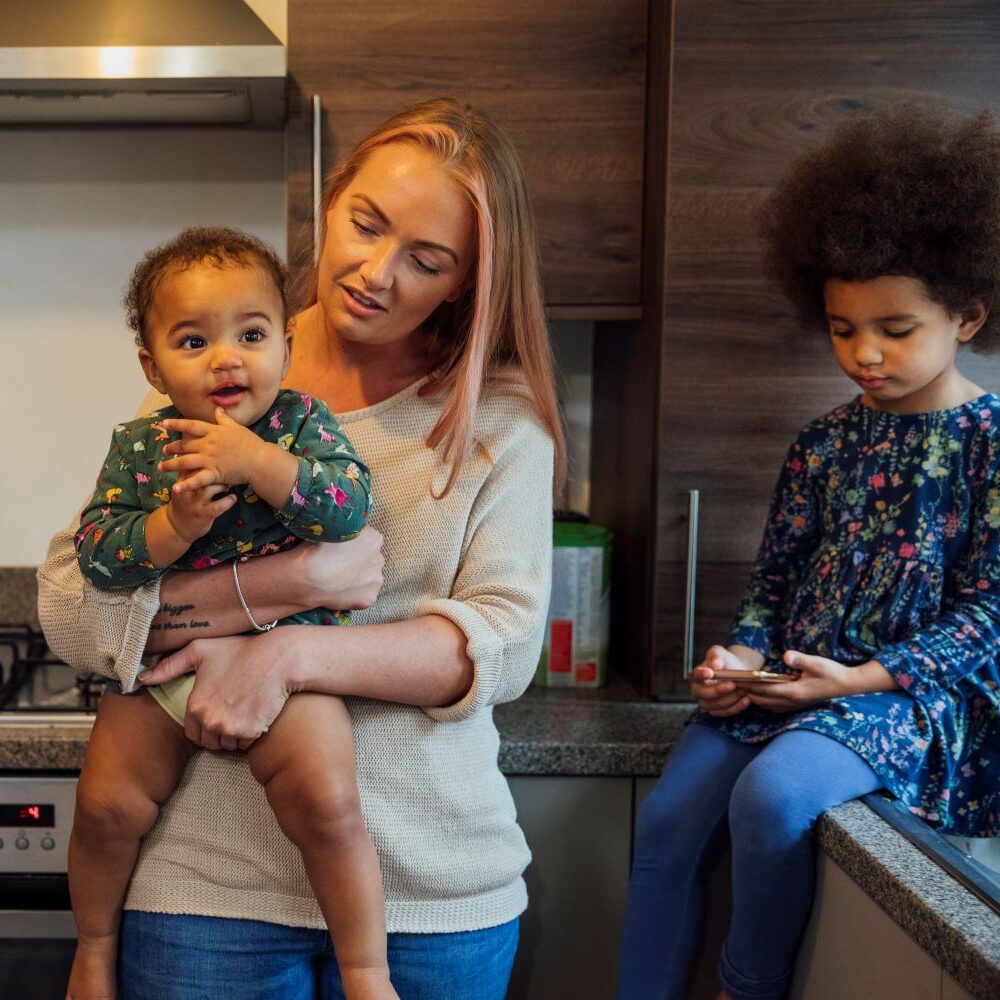
Call, text, email or web chat FamilyLine
If you’re feeling overwhelmed, worried or upset about any aspect of your family life, FamilyLine is here for you. We offer free emotional support and guidance on family relationships, conflict, parenting, caring, financial worries and more.
Contact FamilyLine
